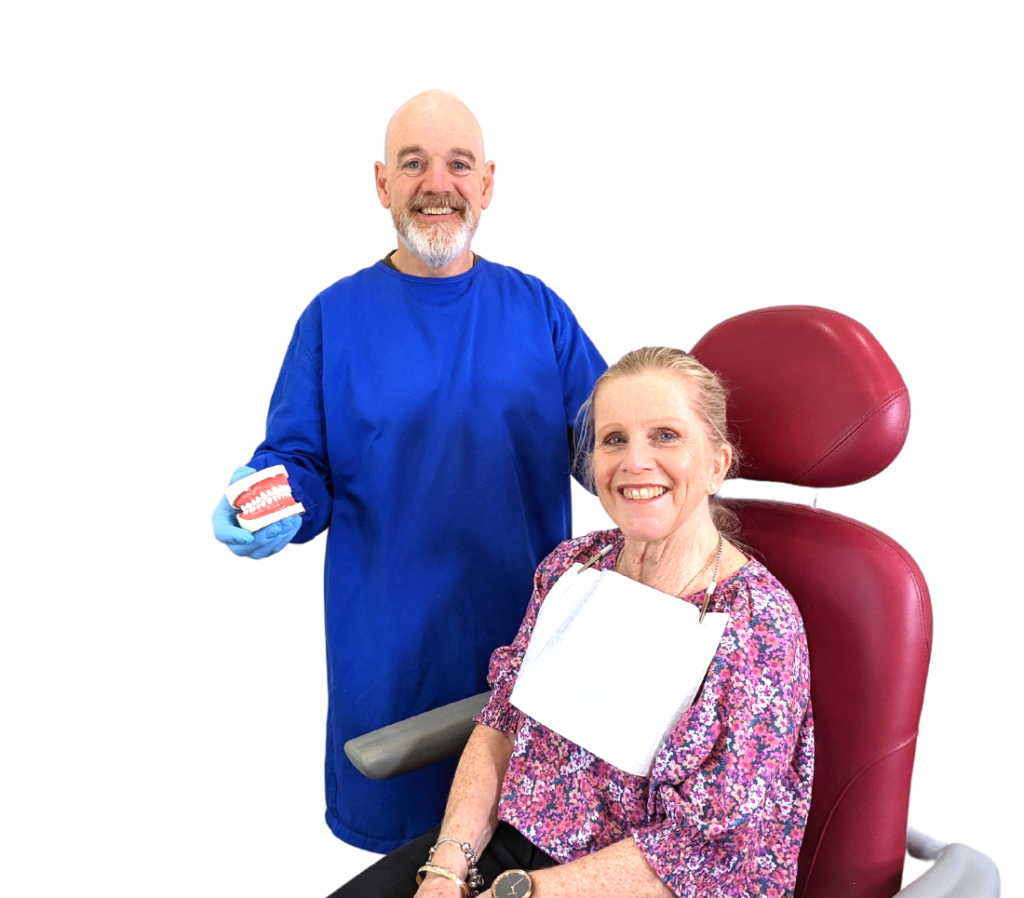What Is a Dental Implant?

Simplistically, dental implants are titanium fixtures shaped like a bolt placed surgically inside the jaw and with healing ‘Osseo-integrate’ with the surrounding bone.
The threads of the dental implant osseo-integrate with the bone below the gums and a precision attachment connects to the dental implant above the gum line. Metal housings with rubber O rings are positioned within your removable overdenture, which then slips over the precision attachments much like a ‘press-stud’ mechanism.
You will immediately enjoy the benefits of dental implants on your overdenture:
- Enhanced retention and stability compared to your regular denture.
- Better aesthetics as visible clasping is reduced or eliminated altogether
- Better chewing function enabling you to eat foods that you could not eat before.
- Improved comfort and confidence.
- Less chance of denture sore spots and ulcerations on your gums as the dental implants inhibit the movement of the denture base toward the soft tissues when biting.
Other important hidden long-term advantages to you are:
- Preservation of remaining residual ridge by better distribution of forces.
- Minimisation of damaging leverage to remaining teeth and therefore increasing the longevity and health of your natural teeth.
- Easy maintenance.
- Better affordability compared to fully fixed implant dental bridges.
- The dental implants most likely will be able to adapt to suit any future changes to your dental condition(s)
The number of implants used and their location intra-orally will be determined by:
- The quality and volume of your jaw bone present.
- Safety boundaries surrounding vital anatomical and neurovascular structures.
- Your personal clinical preference and budget.
- The condition and positions of remaining dentition.
Are dental implants suitable for you?
- There are no absolute health contra-indications for dental implants.
- However, osseo-integration is less predictable in diabetics and cigarette smokers.
- Dental Implants cannot be used in those who have taken IV bisphosphonates used to treat osteoporosis. Chronic use of corticosteroids for auto-immune disorders will lower the success rate of dental implants.
Caring for your Bespoke Overdenture:
- You will need to remove the overdenture at night and for cleaning.
- You should carefully clean around the precision attachments above your gums. Gum disease (peri-implantitis) can develop around the implants and will compromise their stability and ultimately lead to premature failure.
- Annual dental examination is necessary for us to check that your natural dentition, implants and attachments dentition are functioning as intended and the gums and bone remain healthy.
- The retention caps in the housings embedded within your denture will need replacement when they become worn or degraded. Generally speaking, replacement is required every 2- 4 years.
- Renew the composite teeth and reline the denture base using existing casting base every 8 to 10 years depending on the amount of jaw bone shrinkage which occurs with aging.
If you’d like to know more please contact us.

